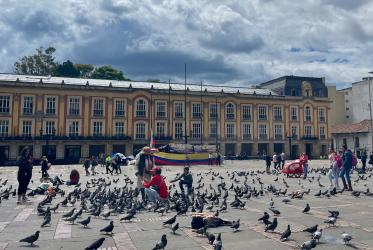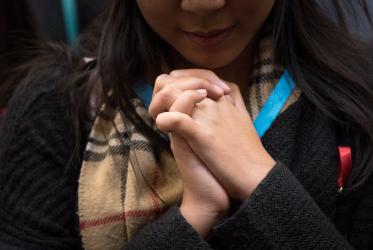Displaying 1 - 20 of 43
WCC at peace dialogue table with UN Security Council in Colombia
15 February 2024
WCC backs extension of ceasefire in Colombia
18 January 2024
WCC appointed as permanent accompanier in Colombian peace talks
21 September 2023
WCC underscores support for Colombia peace process
03 August 2023
Ethiopia is praying for peace amid conflict and COVID-19
21 April 2021
WCC sends letters of concern over violence and conflict in Ethiopia
04 February 2021
WCC condemns recent extremist attacks around the world
03 November 2020












